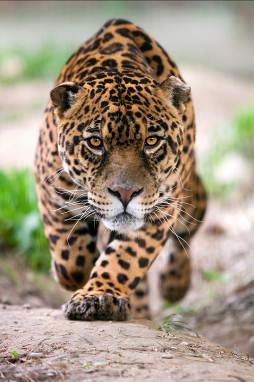Scientists are reporting development of chemical modules that can reproduce, on an “unprecedented” molecular level, changes and interactions that occur in natural populations of plants and animals, including those of hunting and being hunted for food, conducting mutually beneficial relationships and competing for resources.
 Scientists have created chemical modules that copy the behavior of predators like jaguars (above) and their prey. Credit: Credit: iStockphoto/Thinkstock
Scientists have created chemical modules that copy the behavior of predators like jaguars (above) and their prey. Credit: Credit: iStockphoto/Thinkstock
The report on these new “predator-prey biochemical oscillators,” which could become building blocks for molecular machines and computers, appears in ACS Nano.
Yannick Rondelez and Teruo Fujii explain that just as plants and animals interact in complex ways in vast “ecosystems” in nature, molecules, such as small synthetic DNA fragments, can be made to interact in complex ways within test tubes. Therefore, animal behaviors, like hunting (as a predator) and being hunted (as prey), could also be applied to molecules, they say. Currently, researchers can build simple circuits with molecules. But to make complex molecular machines and computers (which would provide information-processing ability to wet systems), they need to understand and control how groups of molecules interact with each other, as animals do in nature.
The scientists describe reproducing predator-prey interactions, mutually beneficial relationships and competitive conditions using DNA and enzymes that build up or break down DNA. “Therefore, beside opening the way to the study of fundamental issues of chemical dynamic systems, we also expect that this approach will provide a useful building block in the scaling-up of molecular computers and machines,” they say.